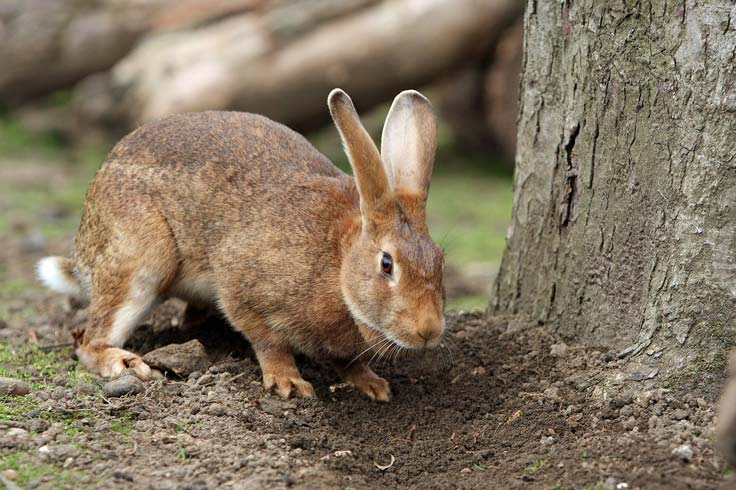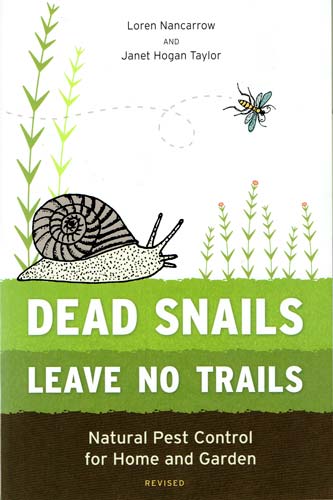More and more clients are asking us about organic solutions to many common landscaping problems. There are many great websites and books out there dedicated to these organic solutions. One such book that I purchased recently is entitled Dead Snails Leave No Trails: Natural Pest Control For Home & Garden by Loren Nancarrow & Janet Hogan Taylor.
While discussing a client with an employee today, he mentioned that the client was concerned with all the damage rabbits had been doing to her plants. As he finished telling me that, it occurred to me that a lot of clients have been mentioning rabbits to me lately. When I got back to the office, I flipped through Dead Snails Leave No Trails to see what Nancarrow & Taylor recommend in order to prevent rabbits from eating plants:
- To protect young seedlings, recycle objects from around the house to create cages. Old milk and yogurt cartons, strawberry baskets, and wire all can be used to make cages. Keep in mind, if you’re using something light, like a strawberry basket, for example, consider placing a rock on top.
- “Use the rabbit’s keen nose against him.” If you have a dog, you can place dog hair or dog droppings around your plants or along the fence to convince the rabbits that a predator is near.
- There are several products available that claim to repel rabbits. Plant Protect Sticks resemble small writing pens and clip onto a plant’s leaf. They claim to repel bunnies with a garlic odor. A similar product, DeFence, repels rabbits by employing the scent of rotten eggs.
- Another scent based tactic to prevent rabbits from eating plants is to sprinkle blood meal around your yard. Supposedly, the small of the blood meal will repel the bunnies. As an added bonus, blood meal is a great fertilizer and can be sprinkled around most plants. The authors advise watering thoroughly after applying blood meal as it can burn your plants and lawn.
- Landscape using plants that rabbits don’t particularly like. The authors make it a point to mention that “a very hungry rabbit isn’t deterred by much.” Consider planting allium, irises, anise hyssop, baptisia, bee palm, veronica, yarrow, daffodils, daylilies, lamb’s ear, and sedum to deter bunnies.
- One of the most common treatments is to simply make the plants they are after taste bad. Try sprinkling plants with red pepper powder, sulfur, or lime. Be aware, these may cause burning to your plants, especially if you use sulfur. If you’re treating vegetables, the authors remind you to wash well before eating.
Lastly, here’s a recipe for rabbit repellant:
- 4 cloves garlic
- 2 cups hot water
- 1 teaspoon fish emulsion
Steep the garlic in the hot water. When cool, discard the garlic and add the fish emulsion. To use, dilute 1 tablespoon of this concentrate in 1 cup of water and spray around your garden plants.
We haven’t tried all of these methods, so we can’t speak to their effectiveness. If you have any tried-and-true methods that prevent rabbits from eating plants, we’d love to hear them. For more natural pest control tips, you can purchase Dead Snails Leave No Trails: Natural Pest Control for Home and Garden by clicking here.






